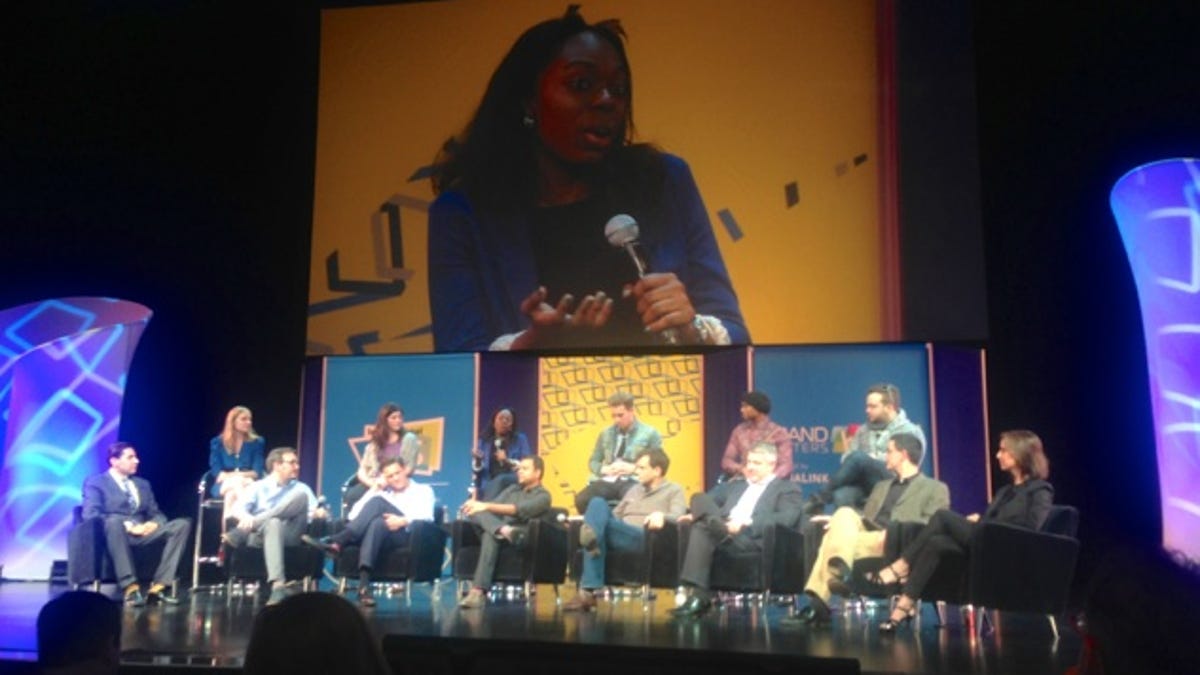How Generation Y really feels about online privacy
Do young adults understand the damning effects of oversharing online? You might be surprised to learn the answer.

LAS VEGAS--A group of consumer panelists shared their candid thoughts on online privacy during a tell-all panel discussion on Generation Y and digital media at CES.
Six extremely articulate young adults ages 18 to 28 fielded questions from moderator Xavier Kochhar and the audience about their social media preferences and attitudes. On the topic of privacy, Darius, a 22-year-old fashion designer who uses Twitter "for therapy" summed up the group's attitude with this statement: "We live in public."
Darius was keenly aware that everything he shares on Twitter or other social media platforms is "out there," which has made him extremely conscious about what he posts. "I would expect people to be more conscious," he said.
The other panelists shared Darius' view and discussed the ways in which they went about keeping their content private. Jordan, a 20-year-old student and environmentalist, said she changed her Facebook settings specifically because of how the social network handles tagging. "I have to filter myself," she said, explaining that she was concerned that some photos or check-ins she was tagged in on Facebook would send the wrong message to employers and colleagues.
Exemplifying just how attuned the panel members were to the potential damning effects of bad behavior on social media, Tess, a Dr. Martens enthusiast who uses Twitter to follow fashion brands and prefers Hulu over traditional television, admitted she used an application to assess her Facebook status updates. She was shocked to find out that she curses more than 90 percent of other people on the social network, and the information has changed her behavior. Tess, like Jordan, is dutiful in managing her Facebook privacy settings.
Tess further underscored the "we live in public" theme with this astute comment: "I don't believe that if I were to turn [my social networks] off that people wouldn't be able to get my info. It's already out there."
Everyone seemed to agree, however, that Facebook's privacy controls, remolded though they may be, were far too difficult to locate and manage.
Talk quickly turned to Instagram, and the panel members were split in their stance about the photo-sharing property. Though all were cognizant of the uproar around Instagram's proposed terms of service, most seemed unaware that Instagram had apologized and retracted the new terms.
Darius said his circle of friends was outraged by the thought that Instagram might sell their photos. Many of his friends were talking about deleting their accounts, he said. Eighteen-year-old Jordan (there were three Jordans on the panel), who loves Tumblr and comic books, said the debacle compelled to her to continue to avoid Instagram, which she wasn't really using before the incident. The older female Jordan had a much different take.
"I laughed at people who said they were going to stop using [Instagram]," the environmentally conscious student said, "because they're still using it today." People were reacting to the news, but they didn't know why they were angry, she felt.
Tess was even more open-minded on the subject. She said Instagram could sell her photos -- so long as they paid her in the process.
Perhaps even more surprising is that a majority of the well-spoken young adults are not averse to advertisers or brands infiltrating their social experiences -- so long as the content is interesting and the ads are relevant.
"If ads are tailored to me, I'm totally fine with them," Tess said, "but [advertisers] really should get it right."
The group especially enjoys consuming content from their favorite brands. Most are actively following their favorite brands because they like their tweets, photos, and status updates, promotions included.
But brands don't get a free pass. This bunch was adamant that their attention or adoration came with strings with attached. Should any of them have a complaint, they have no qualms about voicing those complaints publicly and they expect a reply in 30 minutes or less.
Brands should have people on Twitter 24 hours a day, Tess said.

